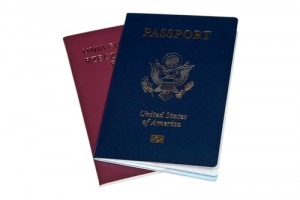It should come as no surprise that your obligation to pay U.S. taxes doesn’t end just because you move away from the United States. Here are some important facts for the U.S. dual citizen and expat community to keep in mind with respect to their taxes.
U.S. taxes doesn’t end just because you move away from the United States. Here are some important facts for the U.S. dual citizen and expat community to keep in mind with respect to their taxes.
1. No matter where they live, all U.S. citizens and permanent residents are taxed on their worldwide income, although they may be eligible for Foreign Tax Credit and the Foreign Earned Income Exclusion.
2. U.S. individual taxpayers are subject to estate and gift taxes, as well as income taxes. Also, quarterly estimated payments need to be mailed in or paid through IRS.gov if they apply to your tax situation.
3. You are allowed a two-month extension to file your personal tax return with the IRS if living outside the U.S. This extension is automatic and does not have to be requested. If you are on a calendar year, this extends you out to June 15th. If more time is needed, an additional extension can be requested to push the final due date to October 15th.
4. If married to a nonresident alien, you generally must file “Married Filing Separate”. Certain exceptions may be met to file under a different status.
5. If you are residing abroad and if you were a U.S. citizen when your child was born, you can claim him or her as a dependent. This is true even if the child’s other parent is a nonresident alien, the child was born in a foreign country, and the child lives abroad with the other parent.
6. You will need a social security number or individual tax identification number for anyone filing and everyone claimed as a dependent on your tax return. File form SS-5 if you need to request a number. In some cases you will also need to submit a Form W-7.
7. If you live abroad and file taxes in a country on a fiscal year for tax purposes (e.g. UK, Australia), you can file a form to the IRS to request to change your U.S. tax year to match that of your resident country.
8. For the purposes of the Affordable Care Act, you are treated as having satisfied the minimum essential coverage requirement if you are not physically present in the U.S. for 330 full days within the 12-month period. This means you will not have to pay the shared responsibility penalty if you live abroad for almost the entire year.
9. Don’t forget about foreign bank accounts from your home country. You face significant penalties if you forget to report balances (above certain thresholds) of your foreign bank accounts to the IRS, even if those accounts have very little activity.
10. The U.S. has tax treaties with certain countries that may exempt some of your foreign income from tax. The details of these agreements are specific to each country, so your facts and circumstances would need to be evaluated carefully by a professional tax advisor to see if your situation applies.

About Five Stone Tax Advisers
Five Stone Tax Advisers has years of experience negotiating directly with the IRS to get the best possible outcome for you. Our International Tax Advisory and Compliance unit has a team of tax attorneys, certified public accountants and enrolled agents that form a single sourced point of contact that will provide services for all the legal, compliance and financial reconstruction aspects of offshore account cases.
